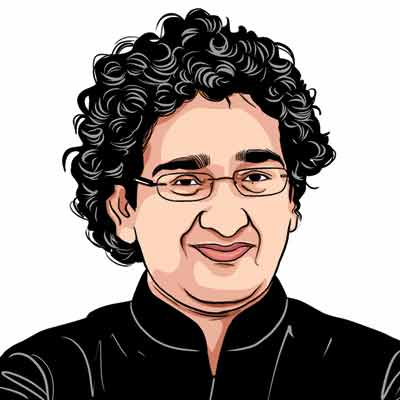Opinion Bar room brawls
That lawyering is a political profession seems obvious enough. But when courts mimic Parliament sloganeering,scuffles,strikes et al...
That lawyering is a political profession seems obvious enough. But when courts mimic Parliament sloganeering,scuffles,strikes et al a lines been crossed. Try telling that to the lawyers who broke egg on an anti-LTTE litigant in full view of two sitting Madras High Court judges,or the refusal of the Mumbai Bar Association to represent Ajmal Kasab a naked breach of legal ethics. Or worse,repeated strikes by lawyers,bringing our glacial legal system to a grinding halt.
The statutory body tasked with stemming this rot is the Bar Council of India (BCI) and state bar councils. Like other guilds the Medical Council of India or the Press Council the BCI aims at self regulation,a mantra first chanted by sociologist Émile Durkheim who,in the early 20th century,argued that the specialist nature of professional guilds required them to be autonomous. Its an idea now considered kosher in any liberal democracy. The BCIs founding statute gives it the power to lay down standards of professional conduct and etiquette for advocates. Standards range from the quaint (no advertising) to the convenient (lawyers cant be sued in consumer courts); the guiding principle: lawyers are more than mere service providers.
With the pedestal so tall,one would expect a pro-active regulatory body to weed out rotten apples. But what do we see? The conversion of the BCI into a sort of lawyers union. Witness,for instance,the Delhi Bar Councils foot-dragging over punishing lawyer R.K. Anand despite film(y) evidence that he influenced witnesses in the BMW hit-and-run case. Or the BCIs uncertain response on Delhi lawyers striking to protest recent changes in bail provisions.
Its Chennai though,that has proved to be the BCIs Waterloo. Instead of punishing the lawyers who attacked Subramanian Swamy (their statutory job) both the BCI as well as the Tamil Nadu Bar Council (TNBC) have churned out resolutions condemning police atrocities. BCI Chairman Suraj Sinha told The Indian Express: its for the state bar council to initiate proceedings; for its part,the TNBC claims its waiting for a complaint this,despite clear case-law holding that bar councils can take suo moto action,and despite Subramanian Swamy having filed a complaint with the police. The response to the longstanding strike by Tamil Nadu lawyers is even more telling. Chennai lawyers have struck work since end January in solidarity with Sri-Lankan Tamils a sympathetic cause,but one unrelated to their service conditions. Even though the Supreme Court deplored this,the BCI responds with a weak resolution justifying strikes only in the rarest of the rare cases. And the TNBC actually supports the strike! Its former President Dhanpal Raj told The Indian Express that lawyers who wished to work were never prevented from doing so. But a Chennai-based advocate,Ananth Padmanabhan,countered to The Express: lawyers who tried to go to court were beaten up.
To be fair,the BCI does punish some errant lawyers. The BCI,which hears only appeals,has around 500 appeals from all over India pending,according to it chairman. On being asked about the TNBCs track record,Dhanpal Raj says that the state bar council is pro-active,we have disciplined 15 lawyers in 2008 alone. But its failure to go after striking lawyers and rowdy ones in 2009 feeds perceptions of incompetence.
Inefficiency would be harmless if it were irrelevant. But the bar councils,warts and all,still pack a punch. To understand the power of the lawyer-lobby,listen to what the story of the Madras High Court clashes sounds like in legalese. The story involves a complicated set of events,some of which like the initial egg throwing on Subramanian Swamy,setting fire to the police station,and hitting a judge implicate at least some lawyers. But,in advocate-speak,the sordid sequence has been reduced to one of police excess; the only question: who allowed the police into court?
Predictably,a probe has been ordered into the Madras melee,headed by a retired Supreme Court judge. And this judge,unlike Barkis,isnt willin to play ball. Justice B.N. Srikrishna resisted years of pressure to produce a compelling account of the 1993 Mumbai riots; more recently,he authored a Sixth Pay Commission report praised for its balance. Alas,the terms of his latest inquiry dont cover a legal fraternity unable to regulate themselves. Still,if the past is any indication,Justice Srikrishnas report will likely be hard-hitting. But if the past is any indication,theres also reason to worry. Justice Srikrishna has a history of not being listened to: his conclusions on the 93 riots were ignored; his pay scale advice was upped by the government. Will the lawyer-lobby ensure that the Srikrishna report 3.0 meets with a similar fate?
vinay.sitapati@expressindia.com





